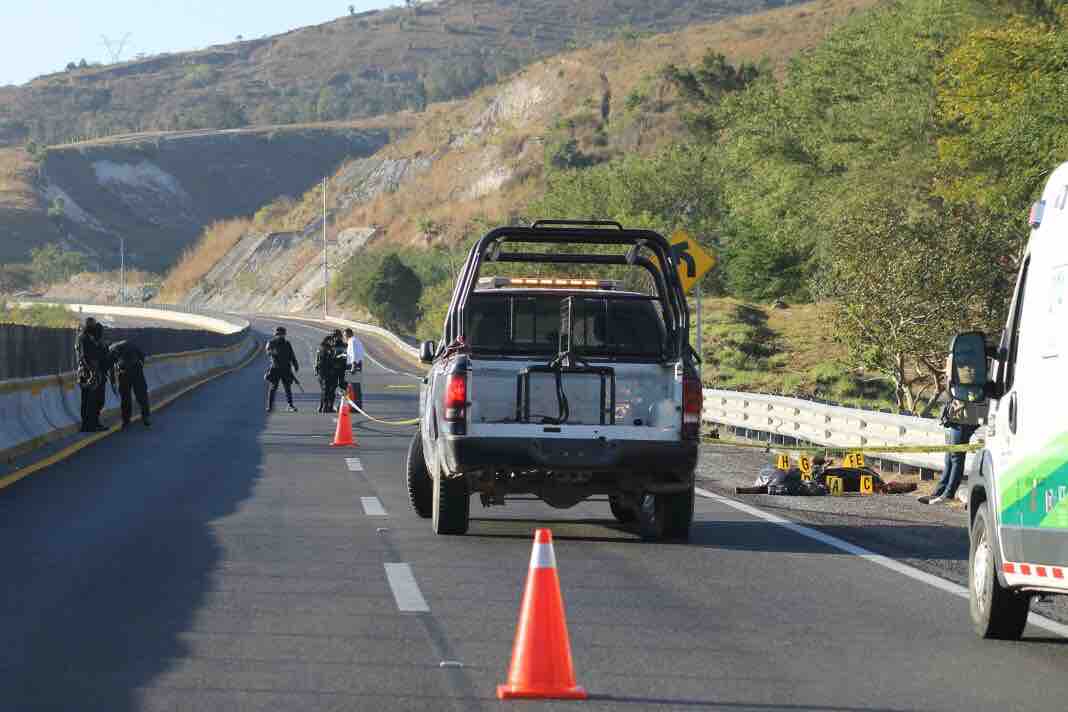Denise Dresser's Defense of Calderon's Drug War (10/17/2016)
Given the increasingly lawless conditions of the country he inherited, Calderon had little choice but to act. And he is to be commended for doing so, because my home has become a place where too many people die, gunned down by a drug trafficker or assaulted by a robber or shot by an ill-trained police officer or kidnapped or strangled by the member of a criminal gang
La Cartita (10/17/2016) ------ In 2009, Senator Richard J Durbin conducted a series of hearings of crime and drugs as it pertained to bilateral relations with Mexico. The entire hearing was to justify more intervention at a supply side level with Mexico. Though there was some brief acknowledgement of demand based problems pertaining to the drug war, the matter was framed as solely a law enforcement issue. We present the comments of Denise Dresser regarding the mutual cooperation between the Mexican and US government. She provided a defense and justification for Calderon's launching of a military intervention on civilian matters, called for some alternatives but her history was quite revisionist. The situation worsened with military intervention with the rate of killings totaling 120000 dead as a result.
Professor Dresser, would you please -- your written statement will be part of the record, and now if you would give us your oral statement, please? DRESSER: Chairman Durbin...
DURBIN: You need to turn on the microphone in front of you there. OK?
DRESSER: Thank you. Chairman Durbin, honorable members of the committee, I welcome the opportunity to speak about Mexico's efforts to combat drug trafficking and organized crime. As has been said earlier today, at the helm of an increasingly visible and active army, President Felipe Calderon has declared a war against drug trafficking and the organized crime networks it has spawned.
Given the increasingly lawless conditions of the country he inherited, Calderon had little choice but to act. And he is to be commended for doing so, because my home has become a place where too many people die, gunned down by a drug trafficker or assaulted by a robber or shot by an ill-trained police officer or kidnapped or strangled by the member of a criminal gang.
Now, dealing with this problem that Calderon took on has not been easy, because the surge of drug trafficking in Mexico reflects a painful paradox: The government's drug efforts are undermined by the corrupting influence of the drug trade, yet the drug trade cannot survive without the protection of compromised elements within the government itself.
As a result, it frequently becomes difficult to distinguish those charged with smuggling from the smugglers themselves. Mexico is a place where if you are the victim of a crime, the last person you call is a police officer.
In the face of police corruption, Calderon has turned to the military to take on the anti-drug effort, but the bringing of soldiers out of the barracks and moving them around the country at will is also a cause for concern.
Given its expanded role, the military is becoming the supreme authority, in some cases the only authority in parts of some states. And greater militarization is also leading to corruption within an institution that has turned into the last credible beachhead in Mexico's longstanding battle.
What we've seen is that over the past decade, Mexico's transition to democracy has cast a glaring light on our precarious, uneven and limited rule of law. Cases of official corruption abound. And the credibility of public institutions has suffered when those proven guilty have eluded punishment.
As a result, impunity runs rampant. Imagine living in a country where 75 percent of crimes are never reported due to lack of trust in the authorities, and where 98 percent of crimes are never resolved or punished.
So while President Calderon's efforts are to be applauded, they must also be accompanied by comprehensive efforts that entail more than soldiers on the streets.
The prospects for a more stable, less insecure Mexico will be contingent on the government's capacity to enact a major overhaul of the judiciary and law enforcement apparatus. It will be dependent on the government's political will to confront corruption at the highest levels of the political system, something the president has been reluctant to do.
Otherwise, it will not matter how many troops are trained, how many weapons are shipped, and how many helicopters are bought. Colombia has spent over $5 billion dollars in U.S.A. with mixed results -- more security, but no end to the drug production.
So the lesson is clear: One of the main objectives of the war that the Mexican government is fighting should not only be the destruction of the drug cartels, but also the construction of the rule of law in Mexico.
And I would urge you to face what has been undoubtedly become a shared bilateral challenge with honesty, realism and determination, and that would entail a recognition of U.S. responsibilities, an understanding of what the U.S. has done, and failed to do, vis-a-vis Mexico.
As has been said, Mexican drug traffickers buy arms that the U.S. sells. Over 2,000 weapons cross the border on a daily basis, and many of them are sold in an illegal fashion. Mexican drug traffickers provide cocaine that U.S. users demand. Over 35 million American citizens are drug users. Mexican drug traffickers have been able to set up distribution networks across over 200 U.S. cities because very little has been done to stop them.
So in the face of an increasingly dire situation, the U.S. can help by providing more anti-narcotics operations within its own borders of the sort announced by Attorney General Eric Holder several weeks ago.
The U.S. can help, as has been suggested here by Terry Goddard, by clamping down on money laundering and financial flows that have enabled people like Mexican drug trafficker Joaquin Guzman to amass a billion dollar fortune and enter the Forbes list.
The U.S. can help by addressing the demand for drugs in its own cities, and President Obama's recent remarks in this regard are most welcome. The U.S. can help by cooperating more, and not less, on security matters. And in this regard, it's worrisome that the funds channeled to the Merida Initiative were reduced recently.
Finally, I think the U.S. government and its people need to understand that this war cannot be waged effectively if the demand for drugs here is not stymied.
To believe that it can be won without dealing with drug consumption and demand-driven forces in the U.S. is to believe that one can stop an earthquake or a hurricane.
For every drug trafficker that is caught, another one will emerge in his place. Indeed, Mexico is paying a very high price for our inability, and I think we recognize this, to construct a prosperous, dynamic, inclusive, lawful country in which citizens aren't propelled into illicit activities in order to survive and criminals are not protected by the government itself.
But we are also paying a very high price for American veracity. Ours is a shared problem that will require shared solutions. Ours is a joint struggle that will demand, if not the audacity of hope, at least the audacity of understanding that the time has come to make the neighborhood, our neighborhood, safe again. Thank you very much.
Tweet






